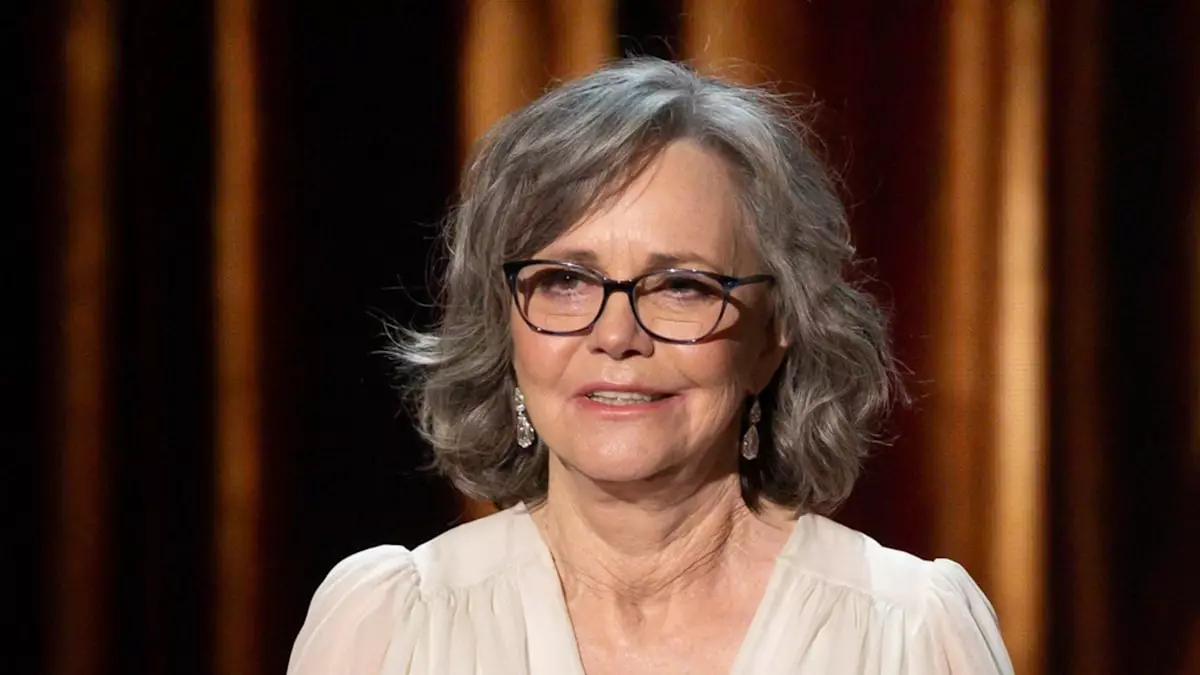In recent months, Sally Field has emerged not just as an iconic actress, but also as a voice of resilience who courageously shared a deeply traumatic experience from her adolescence. The two-time Academy Award winner’s revelation about her illegal abortion in 1964 provides a poignant lens into the struggles surrounding reproductive rights that many women have faced throughout history. In her heartfelt social media message, Field opened up about the “horrific” circumstances of her teenage pregnancy, revealing not only her personal trauma but also highlighting a larger conversation around women’s rights, societal stigma, and the urgent need for change.
Field recounted her youth, marked by a lack of choices and support. At just 17, she found herself in a situation that left her with little agency over her own body and future. This poignant testimony underscores the harsh realities many women face when grappling with unplanned pregnancies, especially during a time when access to contraception and safe medical care was nearly non-existent for unmarried individuals. The glaring absence of resources leads to harrowing experiences, which Field recounts with clarity and emotion.
The turning point in Field’s narrative comes when she describes the role of a family friend, a doctor, who stepped in to provide the support she felt she desperately lacked. The decision to seek an abortion led her to Tijuana, an experience steeped in fear, uncertainty, and vulnerability. Field’s chilling description of being instructed to walk to an obscure building with an envelope of cash serves as a stark reminder of the lengths women had to go to in search of autonomy over their own bodies.
Revealing the harsh realities of the procedure itself, Field recounted being subjected to a painful and dehumanizing experience without anesthesia, where she was also victimized. The trauma of being sexually abused in a setting that should have been a safe medical environment opens a window to the systemic issues that plague the conversation surrounding reproductive rights. The juxtaposition of her struggle with the image of her being cast as the quintessential “All-American girl next door” in Gidget amplifies the irony and societal dissonance experienced by women at the time.
Empowering Others Through Vulnerability
Field’s decision to share her story, despite lingering feelings of shame and vulnerability, is a powerful testament to her strength and a call to action for a new generation. Her narrative is not just about remembering a painful moment but aims to foster solidarity among women who may have faced similar challenges. By sharing her experience, she shines a much-needed light on the communal trauma felt by countless women during a time when options were limited and stigma was pervasive.
Field’s message resonates particularly in the context of today’s ongoing debates surrounding reproductive rights, especially as legislative measures threaten the freedoms women fought so hard to secure. Her encouragement for women to unite and advocate for future generations highlights the critical intersection of personal experience and political activism, emphasizing that the fight for reproductive freedom is far from over.
The Stakes of the Upcoming Election
As the 2024 elections approach, Field’s support for Kamala Harris and Tim Walz elevates her narrative from personal storytelling to a rallying cry for change. She implores her audience to recognize the significance of the upcoming elections and the potential impact on reproductive rights at all levels of government. Her urgency is palpable; she emphasizes that it is crucial to pay attention “up and down the ballot” to protect reproductive freedoms.
It is within this context that Field’s story becomes implicit with a broader message; it is a reminder that personal narratives are deeply intertwined with political landscapes. Highlighting her belief that many women of her generation endured similar fates, Field advocates for collective action, emphasizing that their experiences should inform and inspire the current generation to defend the rights won through struggle.
Sally Field’s unique storytelling reflects not only her personal trauma but also a significant societal issue that demands attention and action. As she reflects on the past, her courage stands as a challenge to present-day society: to advocate for the rights and health of women everywhere, ensuring that no one has to navigate the horrors she faced alone. With her powerful message, Field urges us all to recognize the importance of solidarity and the necessity of protecting the decisions of future generations, firmly declaring: “WE CAN’T GO BACK!”

